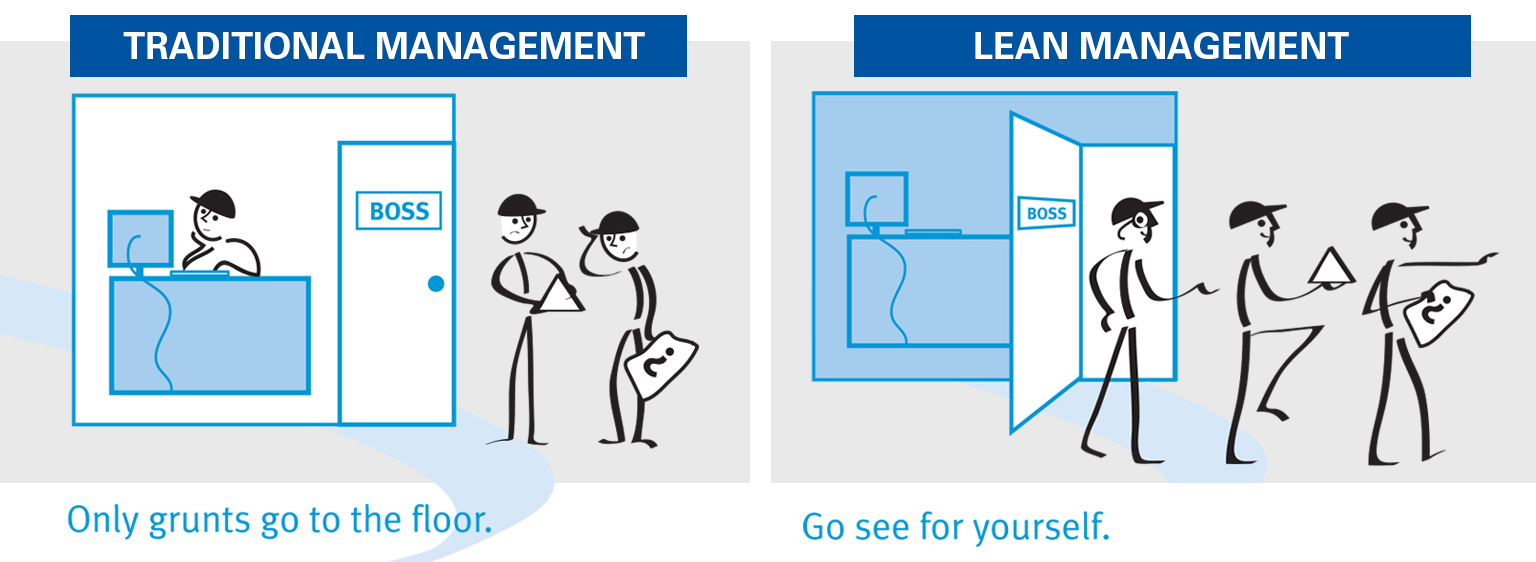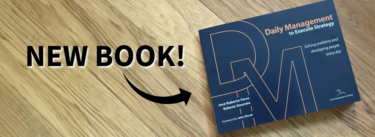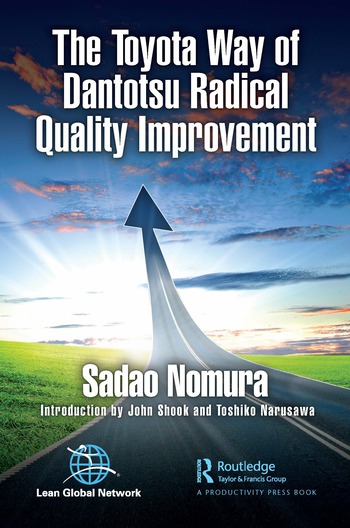I sometimes wonder if we should bother making a distinction between management, and “lean management.” The late Peter Drucker is our foremost authority so far on “management,” and he tells us, “The essence of management is not techniques and procedures. The essence of management is to make knowledge productive.” Pretty good place to start, I’d say, and a definition that probably covers “lean management” as well as any management. But if lean thinking means a different approach to business, then it must also imply a different approach to managing by the people striving to operate in a “lean” way.
My own view of management comes from a little more than 10 years experience working with Toyota, combined with about 15 years of working with many of you to try to understand and use those principles and practices. I’m not sure which experience has taught me more — learning directly from Toyota, or trying to help others learn what I learned at Toyota.
Either way, what we’ll discuss in this space represents neither Toyota’s view nor the views of the many companies and individuals I have worked with and from whom I have learned so much. Nor will it represent LEI’s view. As the disclaimer goes, “The views expressed in this space are solely those of the author, who bears all responsibility for mistakes, errors, lies, and misunderstandings.” I will not go so far as to accept responsibility for the consequences should any of you attempt to try any of the ideas we explore here at home or work. Sorry, but you’re on your own.
The Spirit of Lean Management
I don’t actually have a firm plan for this space. So, I figured, why not use that condition as a starting point? Keeping an open mind about what this space could become may not seem to embody the “planful” aspect of lean management. And yet this approach is consistent with the critical lean management principle of not jumping to solutions. Lean management is not about quick answers, but about going through a thinking process to investigate, analyze, and understand. To try, perhaps to fail, and learn.
In short, lean management is very much about asking questions and trying things, or encouraging others to try things. Lean management itself is not much about providing the right answer but it is very much about asking the right question.
So, what we’ll do in this space is just explore. What to expect — exploring questions. What not to expect — answers. Here’s a great quote that captures the spirit of what I’ll aim for:
The scientific mind does not so much provide the right answers as ask the right questions.
Claude Levi-Strauss
That statement captures the core spirit of lean management just as it also embodies the spirit of learning. And unfortunately, traditional management all too often lacks that very spirit. Traditional management places tremendous pressure on individuals to be right. You must have a Solution, must know The Answer. That sounds good enough on the surface. Who wants to be “wrong”? But that attitude starts us down a familiar and dangerous path. Hiding problems is endemic in almost every company I know and is the surest way to absolutely undermine the practice of effective lean management. Exposing problems, developing countermeasures, and learning from them doesn’t just support lean management; it is lean management.
Robert McNamara, the Secretary of State for U.S. Presidents Kennedy and Johnson, has been picked on mercilessly in recent years, and I’ll join in the piling on here. During a review of the mid-1960s U.S. military effort in Vietnam’s Mekong Delta, an Army officer attempted to inform McNamara that there were many problems that he needed to be aware of. To which the Secretary replied, “I don’t want to hear about your problems, I want to hear about your progress.” Contrast that with a couple of his contemporaries, the anthropologist Claude Levi-Strauss quoted above, and Nobel Prize winner Naguib Mahfouz:
“You can tell whether a man is clever by his answers. You can tell whether a man is wise by his questions.” I’d say the latter expresses a pretty good lean management aspiration.
See you next time,
John
John Shook
Senior Advisor, Lean Enterprise Institute
Key Concepts of Lean Management
Get a proper introduction to lean management.







John,
I have the pleasure of working with Tabitha Dubois and she gave me “Managing to Learn” for Christmas this year. Amazing book! I now use it as a leadership development tool for all my leaders (I manage an account team of roughly 250 people across the US supporting biopharmaceutical manufacturing). Well done and thank you! I’d love to learn more and continue to be involved in the “A3 Thinking”.